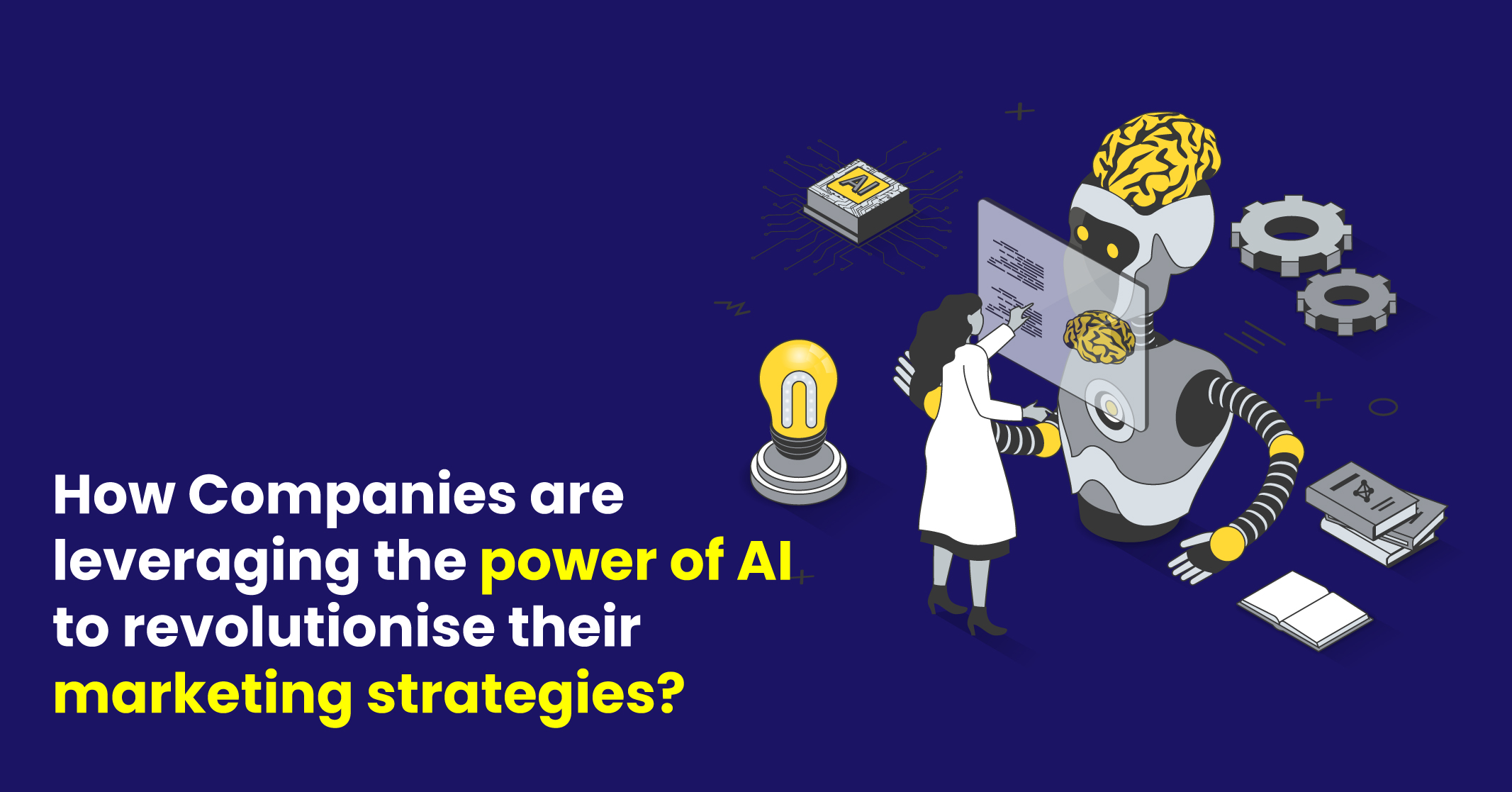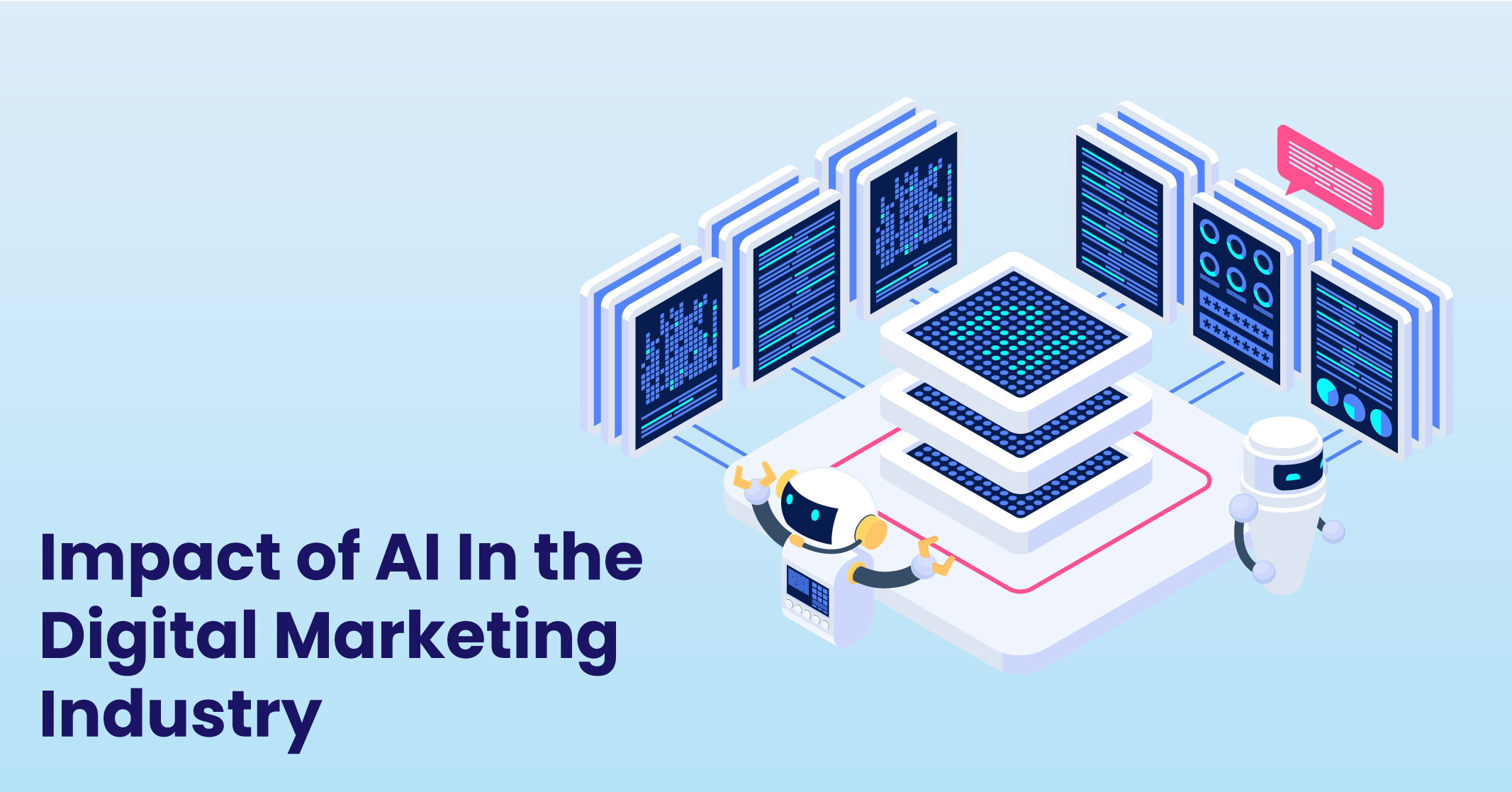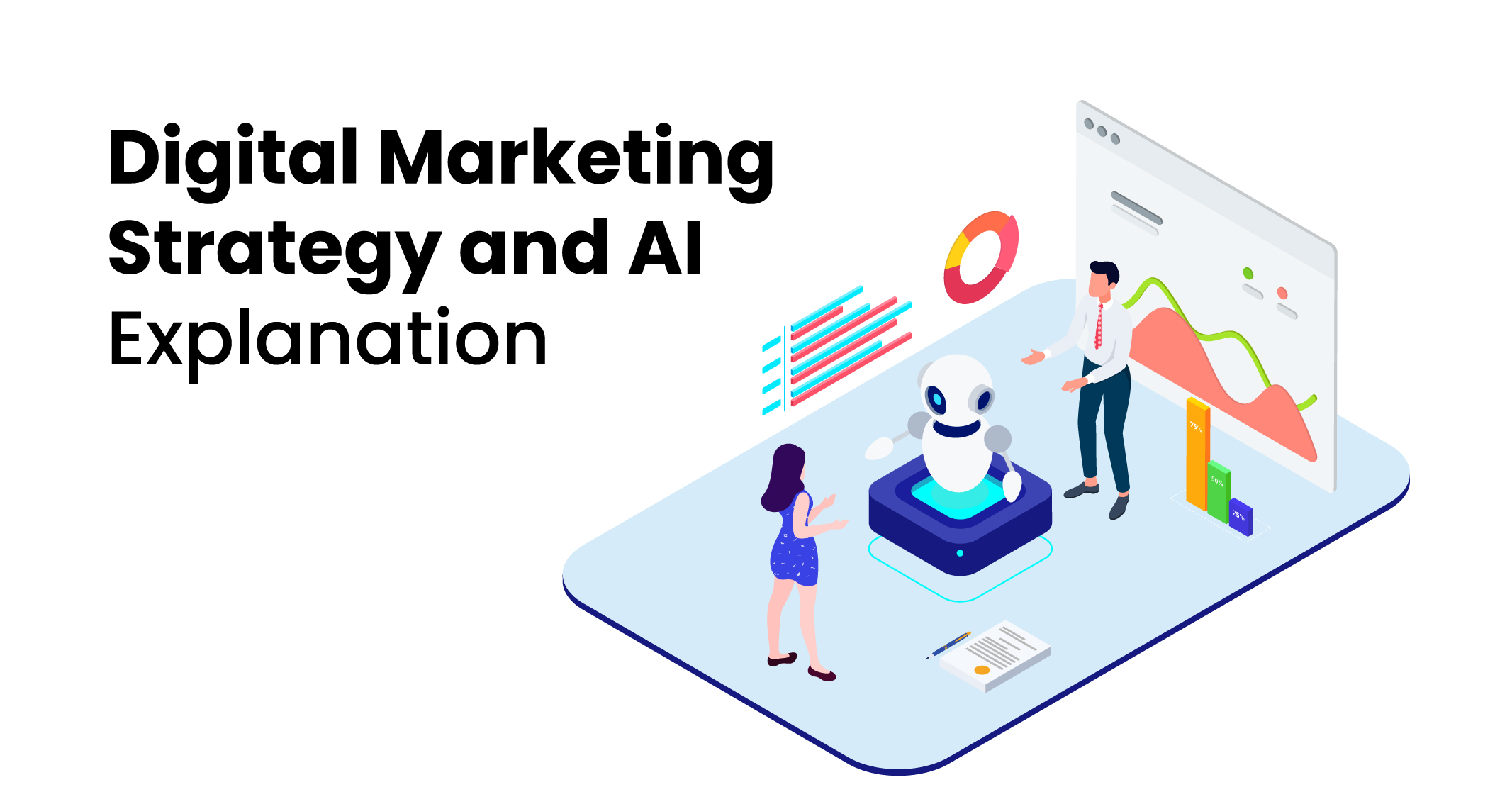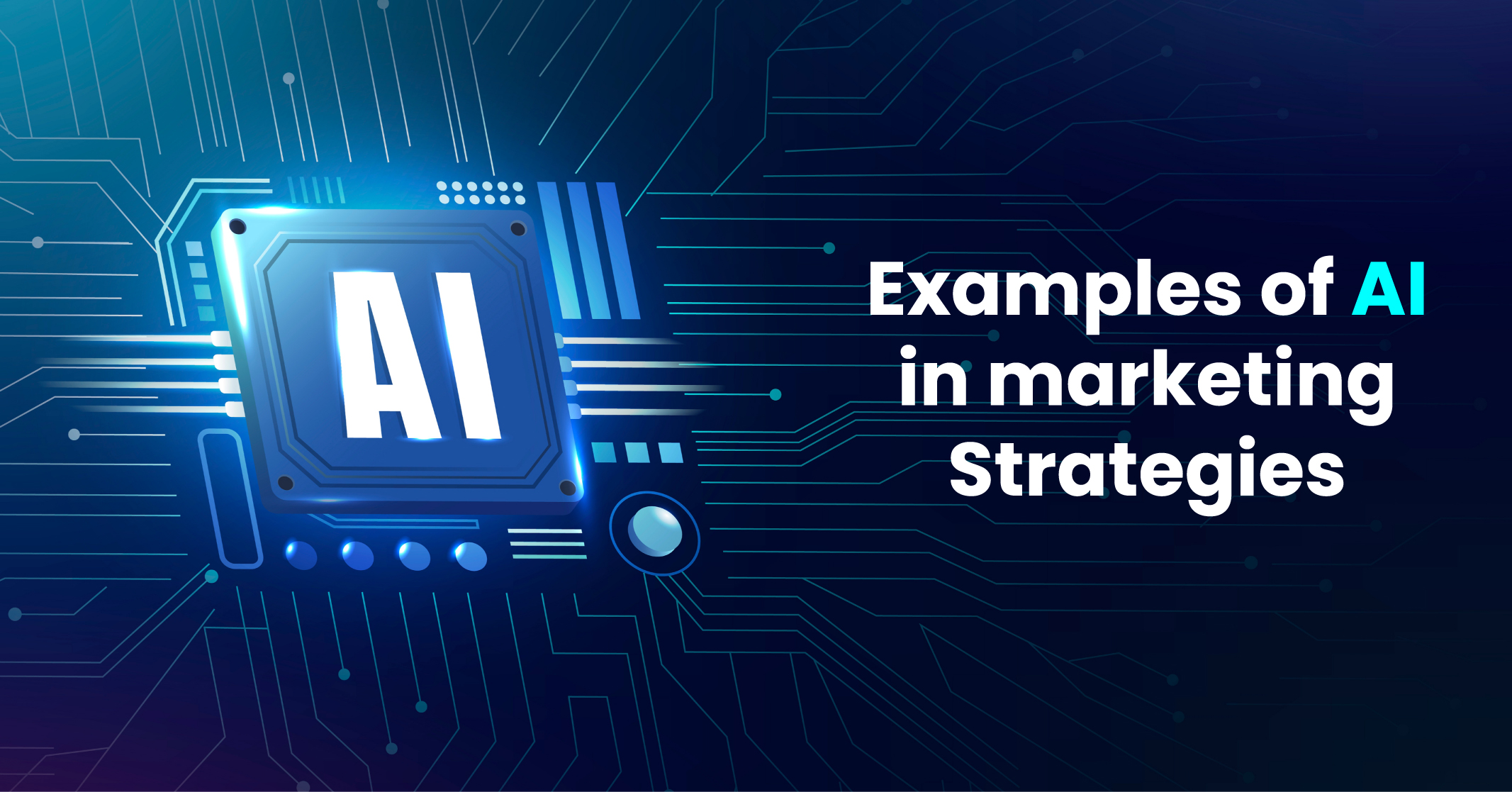I hope you enjoy reading this blog post.
If you want to get more traffic, Contact Us

Click Here - Free 30-Minute Strategy Session
Be quick! FREE spots are almost gone for this Month. Free Quote

Throughout this blog, we’ve explored various applications of Artificial Intelligence (AI) in digital marketing strategy. Now, you might be contemplating your next steps to adopt AI in your marketing strategy. Although we cannot dictate your course of action, we can share real-life instances of how other marketers are currently utilis AI for marketing purposes.
In the following sections, we’ll delve into the practical implementation of AI in marketing by different professionals, including:

Click Here – Free 30-Minute Strategy Session
Be quick! FREE spots are almost gone for this Month
These examples serve as valuable sources of inspiration as you embark on integrating AI into your existing marketing strategy.
Utilising AI in your marketing digital strategy offers numerous advantages. While this article primarily focuses on the “how,” it’s important to highlight one of the key reasons why AI is compelling: automation.
As digital marketers, we often find ourselves facing an ever-expanding list of tasks. It seems there’s always a new content delivery channel or social media platform to keep up with.
The reality is that managing all these demands can be overwhelming without some assistance. This is precisely where AI comes into play.
AI can automate a wide range of repetitive tasks for marketers. It can handle everything from scheduling meetings and appointments to reporting on campaign metrics and optimising advertising campaigns by determining the most effective placement and timing. With the right set of AI tools, your business can benefit from these automation capabilities and more.
Types of Marketing Strategy: There are various approaches that businesses can take to achieve their marketing goals and connect with their target audience. Here are some commonly used marketing strategies:
Businesses often combine multiple marketing strategies to create a comprehensive plan that aligns with their unique needs and objectives.

We conducted a survey of 1,000 digital marketers in the industry to gain insights into how they are utilising AI. Our survey included freelancers, in-house marketers, and agency marketers based in the United States.
Among the surveyed marketers, 209 of them reported already using AI in their marketing strategies. We also assessed their likelihood of incorporating AI in their future business endeavours. The respondents’ comfort levels with integrating AI into their campaigns played a significant role in their responses.
Here’s a breakdown of their comfort levels based on their professional roles:
Freelancers:
In-house marketers:
Agency marketers:
Across all three groups, a larger proportion of marketers reported feeling comfortable rather than any other category. However, there were some variations among the groups.
Notably, freelancers exhibited the highest comfort level. This could be attributed to their enthusiasm for the time-saving potential of AI tools and the absence of procedural barriers that larger organisations may face.
Learn More: Project Magi: The Future of AI-Driven Search Tools

Not all digital marketers feel comfortable using AI to generate complete content. As a middle ground, many marketers are opting to use AI for creating partial content. This approach allows them to save time and effort while addressing concerns such as potential Google penalties or the lack of human touch.
Partial content refers to specific sections of larger pieces, such as a Frequently Asked Questions (FAQs) section or a paragraph. AI copywriting tools like the Ubersuggest AI writer can assist in generating such content.
Our survey revealed that the primary way in which both in-house marketers and digital agency marketers utilise AI is by employing it to create partial content. This approach provides them with the benefits of AI while still maintaining control over the human aspect of their content creation process.
Marketing Strategy Examples: ChatGPT, like the conversational AI model we’re using now, is being employed in marketing. It can generate engaging and persuasive content, assist with writing copy, and even help with content ideation and brainstorming.
By leveraging AI-powered language models, marketers can streamline their content creation process and generate compelling content more efficiently. This example shows how AI is being utilised in marketing today, showcasing its ability to enhance customer interactions, improve targeting and personalisation, optimise pricing strategies and assist in content creation.
Content creation is a major time commitment for making any marketing strategy plan. Writing articles, blog posts, white papers and e-books requires substantial time and effort. That’s why it’s not surprising that many of the respondents in our survey mentioned using AI technology to create complete content.
Points To Know:
If the idea of using AI to create entire content makes you concerned about job security, remember that humans still play a vital role in various aspects of digital marketing. For instance, we need human input to make AI-generated content sound more natural and human-like. So, while AI can assist in content creation, it’s important to recognise the value of human expertise in shaping the final output.
One aspect of digital marketing that can be equally time-consuming as content creation is research. Finding reliable information and organising it into a cohesive outline can eat up hours of valuable time, especially for solo practitioners like freelancers.
That’s why freelance respondents in our survey highlighted research assistance as their top use case for AI technology.
Points To Know:
AI research tools offer the ability to gather data, documents, and notes in a centralised location. These tools also facilitate real-time collaboration, whether your team is working together in the same location or spread across different parts of the world.
For an even more advanced research experience, consider utilising tools that allow you to quickly search, save and receive notifications on research papers based on keywords, author names or broad subjects. These AI-powered tools can significantly streamline the research process and enhance productivity.
Once you’ve selected your topic and gathered your research, the next step is to create a well-structured outline for your content. Your content needs to be coherent and easily understandable, both for human readers and search engine algorithms.
Points To Know:
In-house marketing teams and digital agencies often have established outline processes in place. However, for freelancers, managing outlines can be more challenging. Freelance digital marketers often work with multiple clients, each with their specific outline requirements and procedures. This can consume a significant amount of time and effort to handle effectively.
At the initial stages of content creation, brainstorming for topic ideas is a crucial step. After all, without a topic in mind, it’s impossible to create relevant content.
Points To Know:
Freelancers and digital agency marketers often receive input from their clients, even if it’s not in the form of specific topic ideas. They are provided with parameters or guidelines that help them narrow down their focus and come up with suitable topics.
On the other hand, in-house marketing teams take charge of the content direction themselves. They typically don’t have external sources, such as clients, providing them with topic lists or suggestions for content creation.
As digital marketers produce content on a larger scale, it becomes essential to enhance their editing processes. Accuracy and readability are crucial factors to consider.
Points To Know:
AI-powered tools like Grammarly and Hemingway have revolutionised the proofreading and editing process. They enable marketers to quickly review and enhance thousands of words within minutes. These tools have the potential to save marketers several hours each week, which explains why agency marketers have identified “editing assistance” as their second most common use case for AI tools.
Schema creation plays a crucial role in any digital marketing strategy as it allows search engines to understand the content on your web pages. While managing schema creation for a few articles per week is manageable, scaling it up can become overwhelming. That’s why agency marketers in our survey identified schema creation as another key use case for AI, ranking it as their second most common use case.
Points To Know:
By automating the schema creation process with AI tools, agencies can save a significant amount of time. When incorporating AI into your marketing strategy, it’s essential to focus on what works best for your business and avoid forcing it into areas where it doesn’t fit naturally.
It’s important to note that there may be specific cases where AI tools are not yet advanced enough to meet your requirements. For instance, in industries with legal or medical review processes, you might prefer a more rigorous human review of content.
Remember, AI is a tool designed to assist you. Integrate it with your digital marketing strategy and you’ll reap the benefits. Keep an eye on the development of these tools as they continue to evolve and offer new ways to support your marketing efforts.

Today, we can find various examples of artificial intelligence (AI) being used in marketing.

LEAVE A REPLY